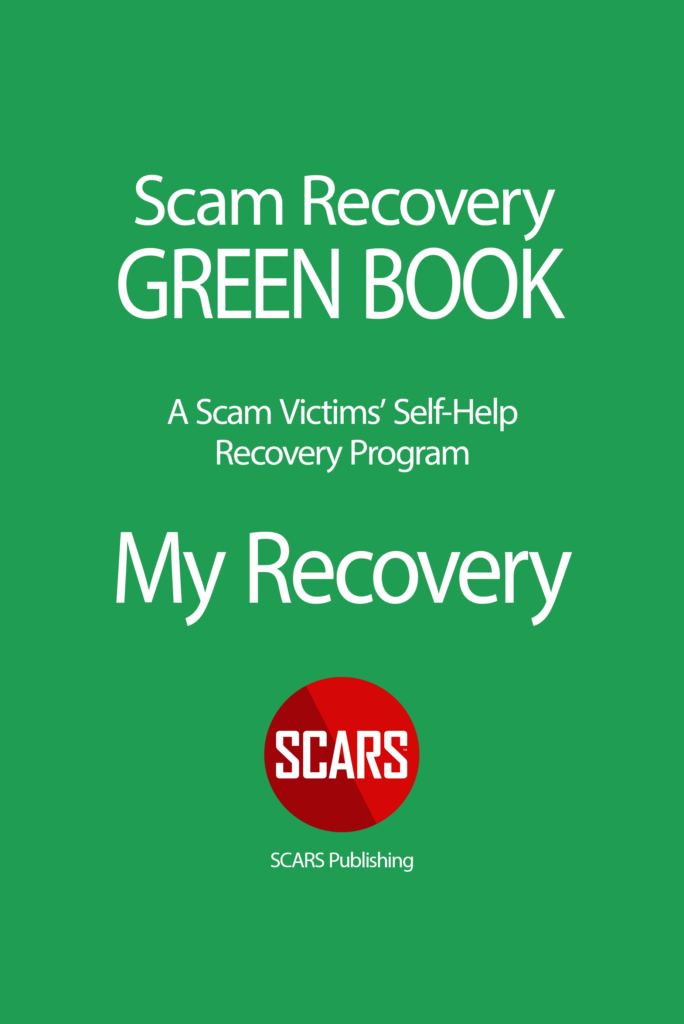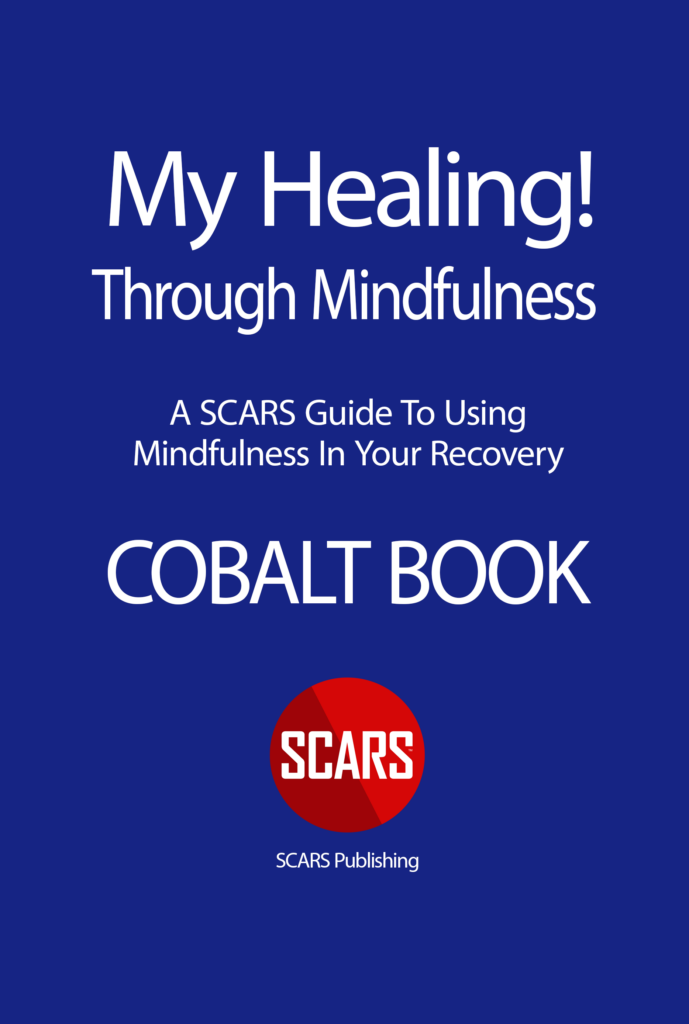Scam Victim Empathy
How It Is Lost And How It Comes Back In Time
Recovery Psychology
Authors:
• Vianey Gonzalez – Licensed Psychologist Specialty in Crime Victim Trauma Therapy, Neuropsychologist, Certified Deception Professional, Psychology Advisory Panel & Director of the Society of Citizens Against Relationship Scams Inc.
• Tim McGuinness, Ph.D. – Anthropologist, Scientist, Director of the Society of Citizens Against Relationship Scams Inc.
About This Article
Scam victims often lose their empathy immediately following the end of a scam due to trauma, but it does return over time. Empathy, the ability to understand and share others’ emotions, is crucial for social interactions and relationships. It involves cognitive empathy (understanding others’ mental states) and affective empathy (sharing others’ emotions).
After a scam, the hyperactivation of the amygdala, a brain region involved in processing emotions, impairs empathy by disrupting emotional processing, perspective-taking, and emotional regulation. This hyperactivity can lead to heightened emotional reactivity and difficulty in understanding others’ emotions.
Over time, and with support from therapy and recovery groups, scam victims can gradually regain their empathy as they recover from trauma. Addressing these issues is essential for helping victims rebuild their emotional connections and social interactions.
Most Scam Victims Lose Their Empathy When Trauma Sets In – Usually Immediately Following The End Of The Scam/Fraud
But it does come back in time!
Empathy is an elusive thing for scam victims. Right after the scam, the amygdala is hyperactivated and as a result, shuts down many other parts of the brain, this also includes most of your empathy.
What is Empathy?
Empathy in humans is the capacity to understand and share the emotions and experiences of others. It allows individuals to connect emotionally, perceive the feelings of others, and comprehend their perspectives. This complex process involves both cognitive and emotional (affective) components.
Externally, empathy is displayed through various actions, such as listening attentively, offering support, and showing compassion. It involves the ability to recognize emotions in others, understand their situation, and respond appropriately. Empathy enables individuals to provide comfort, aid, or understanding without judgment.
It is a complex emotion that involves both cognitive and affective components:
- Cognitive empathy is the ability to understand the mental states of others, including their thoughts, feelings, and intentions. This involves perspective-taking, or the ability to see things from another person’s point of view. In normal life this is easily distorted by Cognitive Biases – because of this very few people actually have deep empathy regardless of what they think.
- Affective empathy is the ability to share the emotions of others. This involves feeling the same emotions that another person is feeling, or at least feeling a similar emotion. This is often called ’emotional intelligence.’
Empathy is a skill, it is learned and is a crucial skill for social interaction and relationships. It allows us to connect with others, build relationships, and provide support. It also helps us to resolve conflicts and promote cooperation. However, after a scam, most scam victims lose this skill or capacity until they are more substantially recovered. Often what victims perceive as empathy in the few months after the scam are avoidance or coping mechanisms.
Overall, empathy is a vital aspect of social interaction and helps in forming meaningful connections, fostering cooperation, and promoting understanding between individuals.
Development of Empathy
Empathy develops throughout childhood and adolescence, influenced by genetics, environment, and social experiences:
- Genetic Predisposition: Genetics play a role in individual differences in empathy, but environmental factors also play a significant role.
- Nurturing Environment: A nurturing and supportive environment fosters empathy by providing opportunities for connection, emotional expression, and understanding of others.
- Social Interactions: Social interactions with caring adults and peers provide opportunities to learn about emotions, develop perspective-taking skills, and practice empathy.
- Cultural Influences: Cultural norms and values can influence the expression and understanding of empathy, shaping how individuals respond to the emotions of others.
Impact of Empathy on Behavior
Empathy influences our behavior in various ways:
- Helping Behavior: Empathy motivates us to help others in need, whether through acts of kindness, support, or advocacy.
- Compassionate Responses: Empathy prompts us to respond to the suffering of others with compassion, comfort, and understanding.
- Prosocial Choices: Empathy guides us toward making prosocial choices that benefit others and contribute to the collective good.
- Reduced Aggression: Empathy can help regulate emotions and reduce aggressive impulses, promoting peaceful interactions.
Importance of Empathy
Empathy is a crucial skill for individuals and societies alike:
- Building Strong Relationships: Empathy is the foundation of strong and meaningful relationships, fostering connection, trust, and mutual understanding.
- Fostering Compassion: Empathy cultivates compassion, enabling us to respond to the suffering of others with kindness, understanding, and support.
- Creating a Just Society: Empathy promotes fairness, equality, and social justice by encouraging us to consider the needs and perspectives of others.
- Promoting Global Well-being: Empathy fosters global cooperation, understanding, and respect for diverse cultures, contributing to a more peaceful and just world.
External Function of Empathy
Empathy plays a vital role in various aspects of our external lives:
- Social Interactions: Empathy allows us to connect with others on an emotional level, build rapport, and form meaningful relationships.
- Prosocial Behavior: Empathy motivates us to help others, act with compassion, and contribute to the well-being of others.
- Conflict Resolution: Empathy enables us to understand different perspectives, find common ground, and resolve conflicts peacefully.
- Social Cohesion: Empathy fosters a sense of community, promotes cooperation, and strengthens social bonds within society.
How Empathy Functions in the Brain
In the brain, empathy involves different regions, including the prefrontal cortex, anterior insula, mirror neuron system, and others.
Empathy, the ability to understand and share the feelings of others, is a complex emotion that involves multiple brain regions working together. While there is no single “empathy center” in the brain, several areas have been identified as playing important roles in different aspects of empathy.
Some of the key regions involved in empathy include:
- Anterior Insula: The anterior insula plays a role in sensing bodily sensations linked to emotions, aiding in the understanding of someone else’s emotional state.
- Posterior Insula (PI): The insula is involved in processing bodily sensations, including emotions. It is also involved in self-awareness, which is important for understanding the emotions of others.
- Emotional Awareness: The PI plays a role in emotional awareness, the ability to recognize and understand our own emotions. It helps us label and differentiate between different emotional states, contributing to emotional intelligence.
- Emotional Regulation: The PI is involved in emotional regulation, the ability to manage and control our emotions. It helps us modulate emotional responses and adapt to challenging situations, promoting emotional well-being.
- Prefrontal Cortex: The prefrontal cortex is associated with understanding others’ perspectives and intentions.
- Mirror Neurons: Mirror neurons, found in areas like the premotor cortex, activate when observing others’ actions or emotions, allowing individuals to simulate and comprehend the feelings or behaviors of others.
- Anterior Cingulate Cortex (ACC): The ACC is involved in processing emotions, including both cognitive and affective empathy.
- Dorsal anterior cingulate cortex (dACC): The dACC is located in the front of the brain and is involved in regulating emotions and self-awareness. Studies have shown that the dACC is activated when people experience empathy distress, the feeling of discomfort or sadness in response to the suffering of others.
- Ventromedial prefrontal cortex (VMPFC): The VMPFC is involved in emotional evaluation and decision-making. It is also involved in understanding social cues, such as facial expressions and tone of voice.
- Supramarginal gyrus (SMG): The SMG is located in the parietal lobe and is involved in understanding the intentions and actions of others. Studies have shown that the SMG is activated when people observe the body language and facial expressions of others.
- Amygdala: The amygdala is involved in processing fear and anxiety. It is also involved in social behavior, including aggression and empathy.
These are just a few of the many brain regions that are thought to be involved in empathy. Researchers are still learning about the exact roles of these regions and how they work together to create the complex emotion of empathy.
How is Empathy Physically affected when the Amygdala becomes Hyperactivated?
You already know (from reading our other articles) that emotional and psychological trauma following the scam’s end causes the Amygdala to become hyperactivated and what some of the effects are from this. However, it also incapacitated a scam victim’s empathy too!
The amygdala, a small almond-shaped structure located deep within the brain, plays a crucial role in processing emotions, particularly fear and anxiety. When the amygdala becomes hyperactive, it can significantly impact empathy (the ability to understand and share the feelings of others.)
- Interference with Emotional Processing: An overactive amygdala can interfere with the brain’s ability to distinguish between personal and external emotions. This can lead to heightened emotional reactivity and difficulty in understanding the emotional states of others, hindering empathy.
- Impaired Perspective-Taking: The amygdala’s hyperactivity can impair perspective-taking, the ability to see things from another person’s point of view. This can make it challenging to grasp the emotional experiences of others, further diminishing empathy.
- Reduced Emotional Regulation: An overactive amygdala can lead to difficulty in regulating emotions, making individuals more susceptible to emotional distress and less able to manage their own emotions effectively. This can interfere with their ability to respond empathetically to the emotions of others.
- Heightened Self-Focus: Hyperactivity in the amygdala can intensify self-focus and preoccupation with one’s own emotions, making it more difficult to attend to and understand the emotional cues of others. This can hinder the development of empathy.
- Altered Social Interactions: Impaired empathy due to an overactive amygdala can negatively impact social interactions. Individuals may struggle to connect with others on an emotional level, leading to social isolation and difficulty forming meaningful relationships.
A way to test this is to sit down with a friend and look at random photos on the internet. The scam victim should always go first and describe what each photo communicates, and what emotion it evokes. The scam victim will normally get it wrong or say it evokes something negative, whereas the friend may have an opposite reaction because they are not traumatized. In our SCARS Support Groups, we frequently display photos for this purpose so that survivors can self-diagnose their level of empathy throughout the recovery process.
Again, What is the Amygdala?
Amygdala hyperactivation can be a common symptom for anyone who experiences emotional or psychological trauma, especially for someone with post-traumatic stress disorder (PTSD), which is a mental health condition that can develop after experiencing a traumatic event. In the context of crime victims, PTSD can be caused by various types of crimes, including assault, robbery, sexual assault, witnessing violence, and especially with longer-duration scams, such as relationship romantic or investment scams.
When a person experiences a traumatic event, the amygdala, which is responsible for processing emotions like fear and anxiety, becomes hyperactive. This can lead to a number of symptoms, including:
- Flashbacks: Experiencing vivid and reliving memories of the traumatic event
- Nightmares: Having recurring dreams about the traumatic event
- Hypervigilance: Being constantly on guard and expecting something bad to happen
- Avoidance: Avoiding anything that reminds the person of the traumatic event
- Hyperarousal: Being easily startled and having difficulty concentrating
- Impairment of the various Cortexes of the Brain: This impairs cognition, empathy, learning, and even things like foreign language use. It can cause symptoms that feel like a kind of ‘brain fog.’
In addition to these symptoms, amygdala hyperactivation can also lead to impaired empathy in crime victims. This is because the overactive amygdala can interfere with the brain’s ability to distinguish between personal and external emotions. This can make it difficult for crime victims to understand and share the feelings of others, which can further isolate them and make it difficult to cope with their trauma.
Treatment for trauma typically includes therapy, medication, or a combination of both. Therapy can help crime victims learn how to manage their symptoms and cope with their trauma. Medication can help to reduce symptoms of anxiety and depression if necessary. At a minimum, scam victims should join a professionally managed support program.
Summary
In summary, hyperactivity in the amygdala can have a detrimental effect on empathy by interfering with emotional processing, perspective-taking, emotional regulation, and social interactions. Addressing these underlying issues can help individuals develop stronger empathetic skills and improve their ability to connect with others on an emotional level.
It is for reasons like these that SCARS recommends to all scam survivors that they seek out a professional trauma counselor or therapist to assist them in their recovery, along with a SCARS Support & Recovery Group.
- Counseling & Therapy Resources: counseling.AgainstScams.org
- SCARS Support Groups: support.AgainstScams.org
More:
- PTSD And Complex PTSD – The Difference Between Them – 2023 (scamsnow.com)
- PTSD and Complex Grief/Complicated Grief – What Are The Differences? 2023 (scamsnow.com)
- Do Scam Victims Become Cynics After Their Scam Experience? 2023 (scamsnow.com)
- Mental Compartmentalization And Recovery For Scam Victims 2023 (scamsnow.com)
- Contractualism and Supporting the Victims of Online Crime (scamsnow.com)
- Hope & The “Pig Pen” Syndrome (scamsnow.com)
- Striatum – Psychology of Scams 2023 (scamsnow.com)
- Scam Victims & Mental Health Blaming (scamsnow.com)
- Pride – A Dual Edged Sword For Scam Victims 2023 (scamsnow.com)
- Toxic Self-Narratives That Feeds Depression in Scam Victims 2023 (scamsnow.com)
- Psychological Triggers/Emotional Triggers – What They Are And How They Work – 2023/2024 (scamsnow.com)
SCARS Resources:
- For New Victims of Relationship Scams newvictim.AgainstScams.org
- Subscribe to SCARS Newsletter newsletter.againstscams.org
- Sign up for SCARS professional support & recovery groups, visit support.AgainstScams.org
- Find competent trauma counselors or therapists, visit counseling.AgainstScams.org
- Become a SCARS Member and get free counseling benefits, visit membership.AgainstScams.org
- Report each and every crime, learn how to at reporting.AgainstScams.org
- Learn more about Scams & Scammers at RomanceScamsNOW.com and ScamsNOW.com
- Global Cyber Alliance ACT Cybersecurity Tool Website: Actionable Cybersecurity Tools (ACT) (globalcyberalliance.org)
- Self-Help Books for Scam Victims are at shop.AgainstScams.org
- Donate to SCARS and help us help others at donate.AgainstScams.org
- Worldwide Crisis Hotlines: International Suicide Hotlines – OpenCounseling : OpenCounseling
- Campaign To End Scam Victim Blaming – 2024 (scamsnow.com)
Please Note
These are complex concepts and we present this theory and information to help educate scam victims and professionals about the complexities of the mind and the impacts of relationship scams and other types of fraud. Additional research and study are needed to better understand these brain functions and processes so that it may lead to better approaches to therapy, as well as support and recovery mechanisms.
-/ 30 /-
What do you think about this?
Please share your thoughts in a comment below!
More ScamsNOW.com Articles
-/ 30 /-
What do you think about this?
Please share your thoughts in a comment above!
SCARS LINKS: AgainstScams.org RomanceScamsNOW.com ContraEstafas.org ScammerPhotos.com Anyscam.com ScamsNOW.com
reporting.AgainstScams.org support.AgainstScams.org membership.AgainstScams.org donate.AgainstScams.org shop.AgainstScams.org
youtube.AgainstScams.org linkedin.AgainstScams.org facebook.AgainstScams.org
ARTICLE RATING
TABLE OF CONTENTS
META
CATEGORIES
MOST POPULAR COMMENTED ARTICLES
POPULAR ARTICLES
U.S. & Canada Suicide Lifeline 988
![NavyLogo@4x-81[1]](https://scamsnow.com/wp-content/uploads/2025/04/NavyLogo@4x-811.png)
WHAT PEOPLE ARE TALKING ABOUT
LATEST SITE COMMENTS
See Comments for this Article at the Bottom of the Page
on Vulnerability to Scams Caused by Past Relationships is Like a River Running through Your Life Cutting Channels – 2025: “My big take away from this article is that there are many layers to my vulnerability. Yes, losing my Mom…” May 8, 11:43
on Hate for Scammers and Criminals Feels So Good But is So Bad for Scam Victims – 2025: “As stated here it feels like it should be justified – to hate them. I never did feel that way,…” May 6, 17:32
on Scam Victims Suppressing Trauma Or Avoiding Recovery And Healing 2024: “This is a great article that will, hopefully, help when I am avoiding facing my emotions/triggers. Recognizing the signs and…” May 6, 16:47
on SCARS 5 Coping Techniques For Traumatized Scam Victims – 2023: “One of the best ways of coping for me has been to reconnect with my friends. I self-isolated for months…” May 6, 16:07
on Trauma Recollection/Traumatic Flashbacks And Scam Victim PTSD – Recovery Psychology – 2023: “I don’t feel like my trauma can be described as PTSD. The affects after the scam ended were severe anxiety,…” May 6, 15:55
on Selective Amnesia and Scam Victim Psychological Trauma 2023: “This was a very interesting article to me. I have not experienced selective amnesia in relation to the scam. However,…” May 6, 15:39
on Psychological Triggers/Emotional Triggers – What They Are And How They Work – 2023/2024: “Not long after my scam ended, I needed to go to the grocery store. It never crossed my mind that…” May 6, 14:48
on Learning And The Challenges That A Scam Victim Faces From Trauma And Related Cognitive Effects – 2024: “My cognitive impairment was bad right after my scam. However, I have now noticed that it was especially bad during…” May 6, 14:23
on Hate for Scammers and Criminals Feels So Good But is So Bad for Scam Victims – 2025: “This is all true and valid. I had to forgive myself first for trusting my abuser because he hurt my…” May 6, 10:08
on Nirvana and the Path to Letting Go of Suffering – 2025: “En mi experiencia podría describir el nirvana en mi recuperación como ese estado de paz profunda y liberación emocional que…” May 5, 18:58
on The Prodigal Son or Daughter – Returning ‘Home’ After the Scam – 2025: “It’s true that the judgment of others does not define my path but if after “coming home” those closest to…” May 5, 13:21
on Beginning Again and Scam Victim Recovery -2025: “Taking action is the first step to recovery and I am doing that and becoming a newer stronger version of…” May 5, 09:53
on Beginning Again and Scam Victim Recovery -2025: “In order not to let this deception define me, since its discovery I have been ACTING.” May 5, 07:22
on The Butterfly Effect And Scam Victims – 2024: “Very good and interesting analogy to the Butterfly Effect and how it pertains to scams. In my crime I can…” May 4, 14:51
on Faith And Why It Matters In Scam Victim Recovery – 2024: “This is a good article giving examples of the difference between faith in oneself and one’s core values – to…” May 4, 13:37
on Reclaiming Your Worth: A Scam Survivor’s Guide to Navigating Your Worthiness After a Scam – 2023: “As an individual I process my emotions slowly whether it is shock, trauma, anger, disbelief. In the cycle of recovery…” May 4, 12:54
on The Stain that Never Goes Away After a Romance Scam for Scam Victims – 2025: “Thank you for sharing this important step on recovery” May 4, 12:09
on Metanoia – The Transformation for Traumatized Scam Victims – 2025: “Excelente articulo!!!… Después de superar la estafa podría describir la metanoia en mi propia experiancia como un renacimiento interior, una…” May 4, 00:24
on Philosophy of Life Planning – From Chaos to Order and the Scam Victim Recovery Path Forward – 2025: “Seeking justice is, unfortunately, not justice. Anger and revenge is not justice either. Recovery is justice. The only justice for…” May 3, 21:16
Important Information for New Scam Victims
Please visit www.ScamVictimsSupport.org – a SCARS Website for New Scam Victims & Sextortion Victims
SCARS Institute now offers a free recovery program at www.SCARSeducation.org
Please visit www.ScamPsychology.org – to more fully understand the psychological concepts involved in scams and scam victim recovery
If you are looking for local trauma counselors, please visit counseling.AgainstScams.org
If you need to speak with someone now, you can dial 988 or find phone numbers for crisis hotlines all around the world here: www.opencounseling.com/suicide-hotlines
Statement About Victim Blaming
Some of our articles discuss various aspects of victims. This is both about better understanding victims (the science of victimology) and their behaviors and psychology. This helps us to educate victims/survivors about why these crimes happened and not to blame themselves, better develop recovery programs, and help victims avoid scams in the future. At times, this may sound like blaming the victim, but it does not blame scam victims; we are simply explaining the hows and whys of the experience victims have.
These articles, about the Psychology of Scams or Victim Psychology – meaning that all humans have psychological or cognitive characteristics in common that can either be exploited or work against us – help us all to understand the unique challenges victims face before, during, and after scams, fraud, or cybercrimes. These sometimes talk about some of the vulnerabilities the scammers exploit. Victims rarely have control of them or are even aware of them, until something like a scam happens, and then they can learn how their mind works and how to overcome these mechanisms.
Articles like these help victims and others understand these processes and how to help prevent them from being exploited again or to help them recover more easily by understanding their post-scam behaviors. Learn more about the Psychology of Scams at www.ScamPsychology.org
SCARS INSTITUTE RESOURCES:
IF YOU HAVE BEEN VICTIMIZED BY A SCAM OR CYBERCRIME
♦ If you are a victim of scams, go to www.ScamVictimsSupport.org for real knowledge and help
♦ Enroll in SCARS Scam Survivor’s School now at www.SCARSeducation.org
♦ To report criminals, visit https://reporting.AgainstScams.org – we will NEVER give your data to money recovery companies like some do!
♦ Sign up for our free support & recovery help by https://support.AgainstScams.org
♦ Join our WhatsApp Chat Group at: https://chat.whatsapp.com/BPDSYlkdHBbDBg8gfTGb02
♦ Follow us on X: https://x.com/RomanceScamsNow
♦ Follow us and find our podcasts, webinars, and helpful videos on YouTube: https://www.youtube.com/@RomancescamsNowcom
♦ SCARS Institute Songs for Victim-Survivors: https://www.youtube.com/playlist…
♦ See SCARS Institute Scam Victim Self-Help Books at https://shop.AgainstScams.org
♦ Learn about the Psychology of Scams at www.ScamPsychology.org
♦ Dig deeper into the reality of scams, fraud, and cybercrime at www.ScamsNOW.com and www.RomanceScamsNOW.com
♦ Scam Survivor’s Stories: www.ScamSurvivorStories.org
♦ For Scam Victim Advocates visit www.ScamVictimsAdvocates.org
♦ See more scammer photos on www.ScammerPhotos.com
You can also find the SCARS Institute on Facebook, Instagram, X, LinkedIn, and TruthSocial
Psychology Disclaimer:
All articles about psychology and the human brain on this website are for information & education only
The information provided in this and other SCARS articles are intended for educational and self-help purposes only and should not be construed as a substitute for professional therapy or counseling.
Note about Mindfulness: Mindfulness practices have the potential to create psychological distress for some individuals. Please consult a mental health professional or experienced meditation instructor for guidance should you encounter difficulties.
While any self-help techniques outlined herein may be beneficial for scam victims seeking to recover from their experience and move towards recovery, it is important to consult with a qualified mental health professional before initiating any course of action. Each individual’s experience and needs are unique, and what works for one person may not be suitable for another.
Additionally, any approach may not be appropriate for individuals with certain pre-existing mental health conditions or trauma histories. It is advisable to seek guidance from a licensed therapist or counselor who can provide personalized support, guidance, and treatment tailored to your specific needs.
If you are experiencing significant distress or emotional difficulties related to a scam or other traumatic event, please consult your doctor or mental health provider for appropriate care and support.
Also read our SCARS Institute Statement about Professional Care for Scam Victims – click here
If you are in crisis, feeling desperate, or in despair, please call 988 or your local crisis hotline.
More ScamsNOW.com Articles
A Question of Trust
At the SCARS Institute, we invite you to do your own research on the topics we speak about and publish. Our team investigates the subject being discussed, especially when it comes to understanding the scam victims-survivors’ experience. You can do Google searches, but in many cases, you will have to wade through scientific papers and studies. However, remember that biases and perspectives matter and influence the outcome. Regardless, we encourage you to explore these topics as thoroughly as you can for your own awareness.


















![scars-institute[1]](https://scamsnow.com/wp-content/uploads/2025/04/scars-institute1.png)
![niprc1.png1_-150×1501-1[1]](https://scamsnow.com/wp-content/uploads/2025/04/niprc1.png1_-150x1501-11.webp)

Empathy has indeed been absent in my life since the end of my crime. It could be because so many people do not share of themselves like they used to. It seems like each person is their own little island and they vigorously defend those islands. They would rather have a party then to allow someone to know something about themselves. On the other hand, I have been very protective of myself. I feel like no one will understand what I’ve experienced and I’m sure many will not. Following suit I am hypervigilant so that I don’t go through needless trauma in order to explain amygdala hijack.
Unfortunately most people do not share enough for someone else to have the information to empathize with them. For me, hyperarousal was the main symptom of hyperactivity in the amygdala.